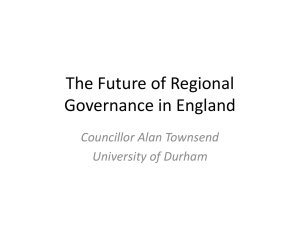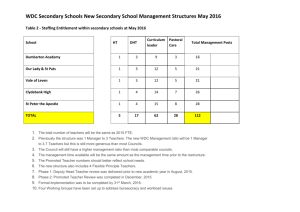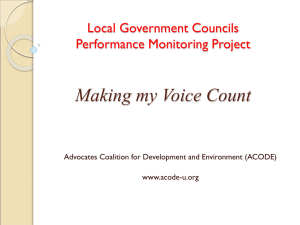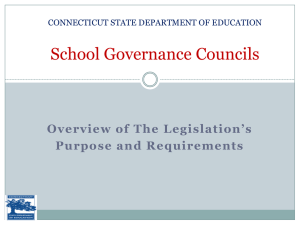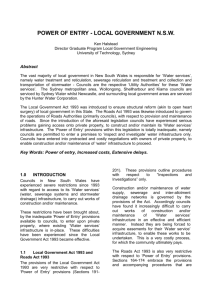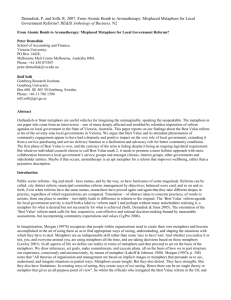Discussion Starter 3 - Parent Community Education Partnerships
advertisement
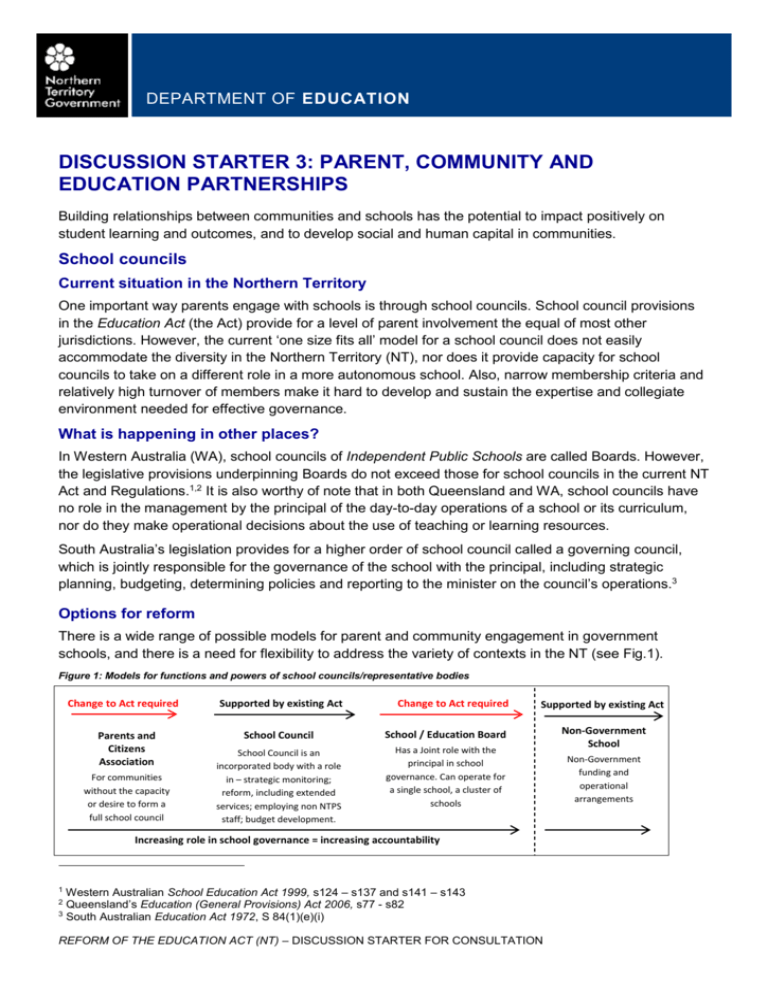
DEPARTMENT OF EDUCATION DISCUSSION STARTER 3: PARENT, COMMUNITY AND EDUCATION PARTNERSHIPS Building relationships between communities and schools has the potential to impact positively on student learning and outcomes, and to develop social and human capital in communities. School councils Current situation in the Northern Territory One important way parents engage with schools is through school councils. School council provisions in the Education Act (the Act) provide for a level of parent involvement the equal of most other jurisdictions. However, the current ‘one size fits all’ model for a school council does not easily accommodate the diversity in the Northern Territory (NT), nor does it provide capacity for school councils to take on a different role in a more autonomous school. Also, narrow membership criteria and relatively high turnover of members make it hard to develop and sustain the expertise and collegiate environment needed for effective governance. What is happening in other places? In Western Australia (WA), school councils of Independent Public Schools are called Boards. However, the legislative provisions underpinning Boards do not exceed those for school councils in the current NT Act and Regulations.1,2 It is also worthy of note that in both Queensland and WA, school councils have no role in the management by the principal of the day-to-day operations of a school or its curriculum, nor do they make operational decisions about the use of teaching or learning resources. South Australia’s legislation provides for a higher order of school council called a governing council, which is jointly responsible for the governance of the school with the principal, including strategic planning, budgeting, determining policies and reporting to the minister on the council’s operations.3 Options for reform There is a wide range of possible models for parent and community engagement in government schools, and there is a need for flexibility to address the variety of contexts in the NT (see Fig.1). Figure 1: Models for functions and powers of school councils/representative bodies Change to Act required Parents and Citizens Association For communities without the capacity or desire to form a full school council Supported by existing Act Change to Act required School Council School / Education Board School Council is an incorporated body with a role in – strategic monitoring; reform, including extended services; employing non NTPS staff; budget development. Has a Joint role with the principal in school governance. Can operate for a single school, a cluster of schools Supported by existing Act Increasing role in school governance = increasing accountability Western Australian School Education Act 1999, s124 – s137 and s141 – s143 Queensland’s Education (General Provisions) Act 2006, s77 - s82 3 South Australian Education Act 1972, S 84(1)(e)(i) 1 2 REFORM OF THE EDUCATION ACT (NT) – DISCUSSION STARTER FOR CONSULTATION Non-Government School Non-Government funding and operational arrangements Options for reform include: requiring government schools to have some form of parent/community representative body providing for the powers and functions exercised by a representative body to evolve so it can potentially become a board for one or more schools, where capacity has been demonstrated establishing clear operating requirements and guidelines for representative bodies providing for the composition of representative bodies to accommodate local cultural factors broadening the composition of school councils/representative bodies to include community members and providing for executive members to be elected clearly delineating the roles of the principal and the school council/representative body introducing greater accountability in relation to the powers and functions of a school council/representative body, including budgeting, funds expenditure, and reporting providing representative bodies with a legislative basis for operating programs as part of a fullservice school. For example, outside school hours care programs, school breakfast/lunch programs, long day care centres, adult education programs clarifying provisions relating to ownership of property purchased by representative bodies providing greater continuity of membership through differentiated and staggered terms of office providing for a code of conduct for members. WHAT DO YOU THINK? Do you think there should be greater flexibility in the powers and functions exercised by individual school councils to support a range of governance roles? Why/why not? Should schools be required to have a representative body of some kind? Why/why not? Do you think the composition of school councils should change to allow for broader community involvement? If so, what should the composition be? Do you think it is important to limit turnover in membership? Why/why not? Should there be a code of conduct for members? Why/why not? Are there other reforms that are needed in relation to school councils/representative bodies? Public-private partnerships What is happening in other places? Public-private partnerships relating to education exist in a number of jurisdictions. For example, a forprofit corporation may build a school facility and lease it to government for the purpose of operating a school. Partnering with business in this way not only increases investment in education, but it also has the potential to grow partnerships with industry that may ultimately improve school to work transitions. Options for reform An option for reform is to make provision for government to enter into public-private partnerships. WHAT DO YOU THINK? Do you think that these kinds of public-private partnerships are a good thing? Why/why not? Do you have any ideas on how a public-private partnership might work in the NT context? DISCUSSION STARTER 3: PARENT, COMMUNITY AND EDUCATION PARTNERSHIPS - 2 -



